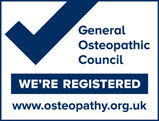Osteopenia awareness and simple tips for strong bones
At Northlondonosteopaths, Alan Nevies and his colleagues are very interested in bone health. Our very name contains the word osteo which means relating to bones! So we want to share information about a little known bone condition that can cause fractures. Many people know about osteoporosis, but may not have heard of osteopenia. In an article in the Daily Telegraph 26/10/25, Susanna Galton shares that an MRI scan revealed that she does not have osteoporosis but she does have osteopenia. This is low bone density, while not as low as the reading for osteoporosis, but low enough to cause fractures in bones. It is thought that by the age of 50 about 42% of people might have it. While lifestyle choices have an impact on our bone strength (smoking, drinking and being underweight may increase the chances of low bone density), 75% of our susceptibility comes from our genes. There are certain medications that are prescribed for osteopenia, although in a book by Jayne M Wessler “Reverse Osteoporosis and Osteopenia”, he suggests evidence based tips for non medical interventions that might help. Some of them are listed below.
Weight Training Heavy lifting has been shown to be not only safe but beneficial for people with low bone density. The goal is to lift heavy but with control and good posture. It is crucial to start slow and gradually build up and if you have osteoporosis or joint pain, consult a physio or doctor. 2 simple exercises, the goblin squat and dumbell deadlift are good ones to try and Alan Nevies and his colleagues are happy to show you how to do them safely and effectively.
Diet Protein and calcium are crucial. Swap oat milk for cows milk. Increase consumption of oily fish, especially anchovies and sardines, green and cruciferous vegetables. Fizzy drinks and alcohol are off the menu, and caffeine should be limited to a maximum of 4 cups of coffee per day.
Vitamin D as vitamin D deficiency can wreck bones people need to check their levels and supplement if they are below recommended levels.
Sleep adequate sleep plays a key role in hormone balance and bone health.
Stress chronic stress depletes calcium stores in our bones and Tai Chi, yoga and forest bathing are recommended.
Alan Nevies and his colleagues at northlondonosteopaths believe that strong bones are vital for our health at all ages but especially as we get older. We hope that by taking on board the suggestions above your bones will get stronger and this may help to prevent fractures that can be so devastating.


